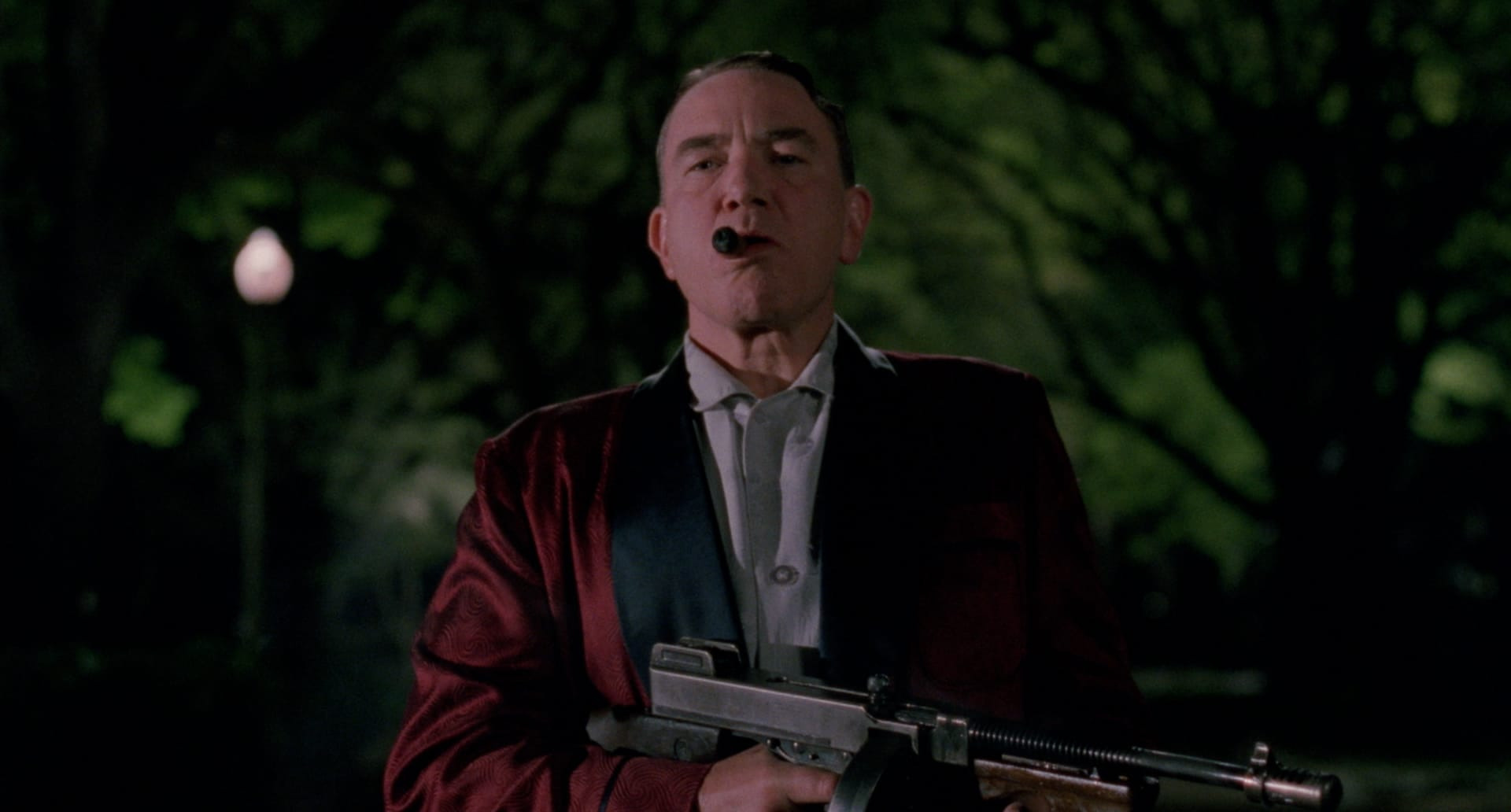RELATED ARTICLE
Inside Llewyn Davis: The Sound of Music
By Kent Jones
The Criterion Collection

Cahiers du cinéma: Do you remember [Dashiell Hammett’s] The Glass Key? The end?
“Let’s Talk About Pierrot,” October 1965
Jean-Luc Godard: Not very clearly. I’d like to reread it.
Cahiers: At the end, a woman who has hardly featured in the story suddenly recounts a dream.
Godard: The Americans are marvelous like that.
September 1990 saw the U.S. releases of three noteworthy American gangster movies: Martin Scorsese’s concussive, definitive, multidecade mob story Goodfellas; Abel Ferrara’s simultaneously white-hot and icy-cold contemporary drug-lord parable King of
New York; and Joel and Ethan Coen’s Prohibition-era corkscrew Miller’s Crossing. Of the three, the Coens’ film—a terse and lyrical fable of violence, loyalty, and existential unease that draws on the hard-boiled fiction of Dashiell Hammett—is the most enigmatic and the most haunting.
These qualities are due to the character at the center of Miller’s Crossing. Goodfellas’ carousing, wildly irresponsible Henry Hill is a simple man; the aspiring philanthropist and vicious killer Frank White, in King of New York, is a man with a dream; in Miller’s Crossing, Tom Reagan is a . . . what?
In a sense, he’s a prototype of the Coens’ variation on a familiar literary and cinematic trope, the Man Alone. In what many have called “Coen country,” this figure is sometimes one who is slowly made to realize that the world he once considered his home is either passing him by or just flat-out ending: see the title character of Inside Llewyn Davis (2013), or Larry Gopnik in A Serious Man (2009), or Eddie Mannix in Hail, Caesar! (2016). The Dude of The Big Lebowski (1998) doesn’t seem to mind much that the world passed him by a long time ago. Ed Tom Bell in No Country for Old Men (2007) understands that the ending of worlds is just in the nature of things: “You can’t stop what’s coming.” As far as Rooster Cogburn in True Grit (2010) is concerned, he is the world. (These latter two characters were originated by two redoubtable American writers—Cormac McCarthy and Charles Portis, respectively—whose worldviews are unusually suited to that of the Coens.) In each of these films, the audience can easily understand where these men are, as they say, coming from. That’s not at all the case with Tom Reagan.


